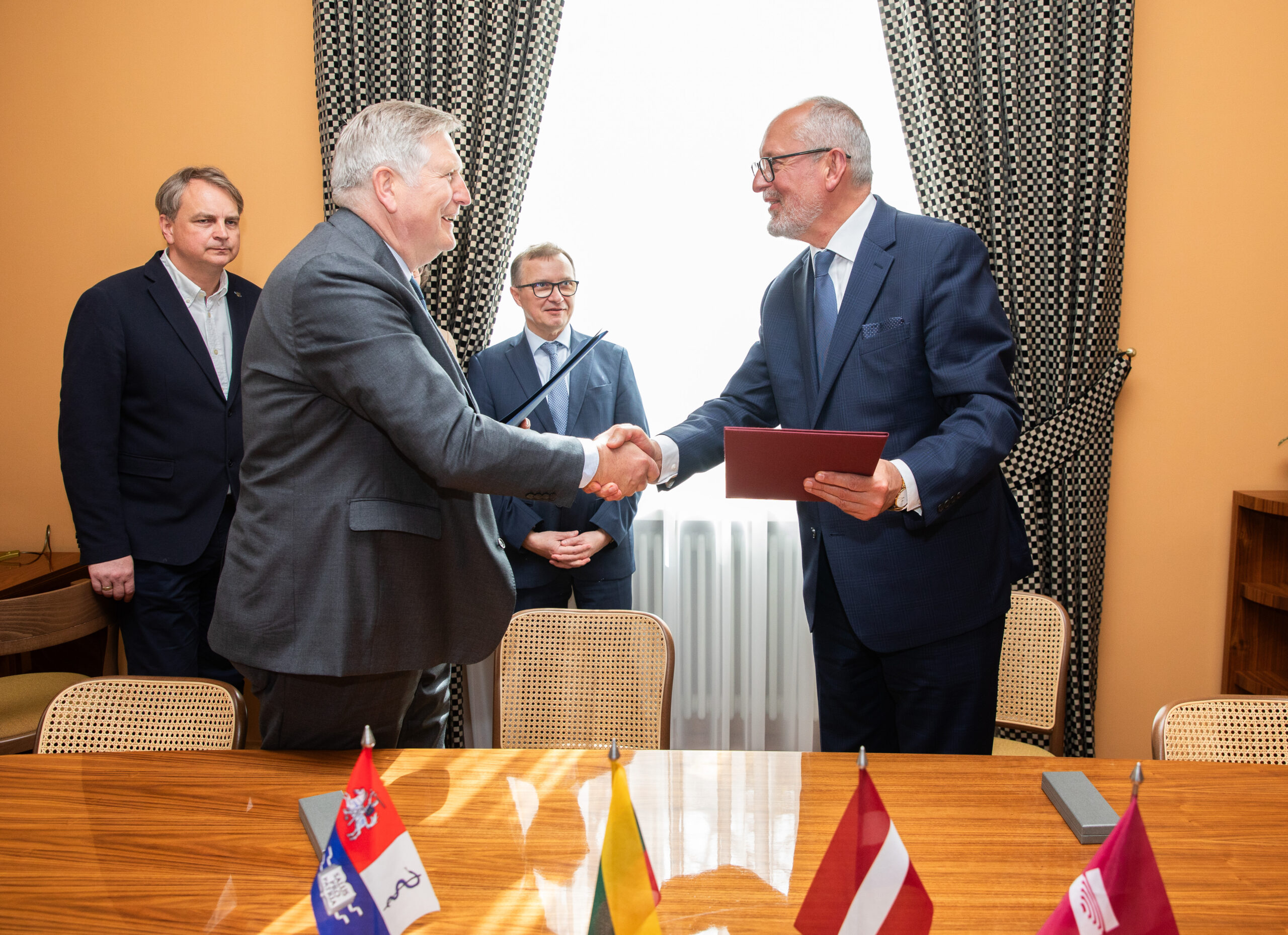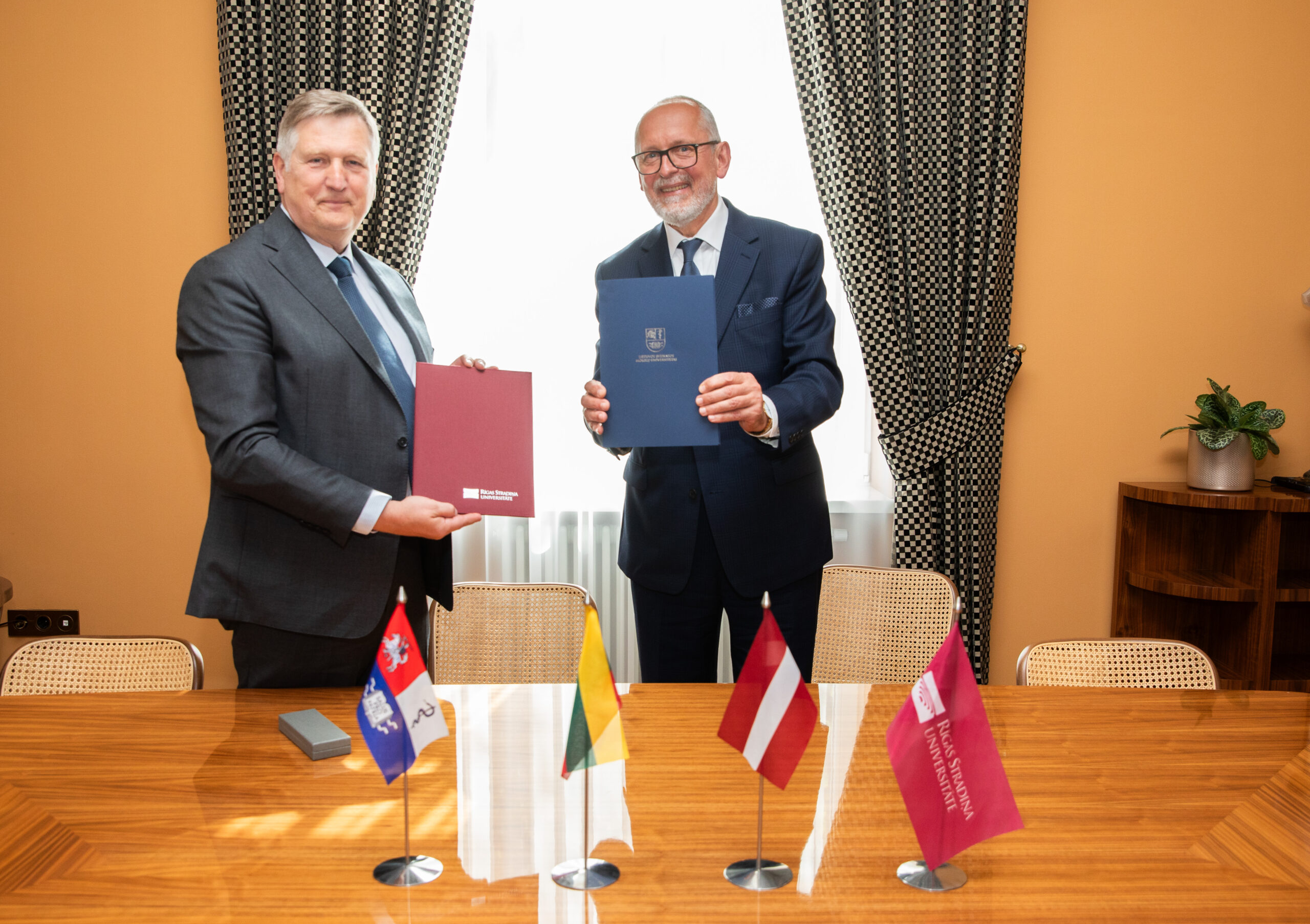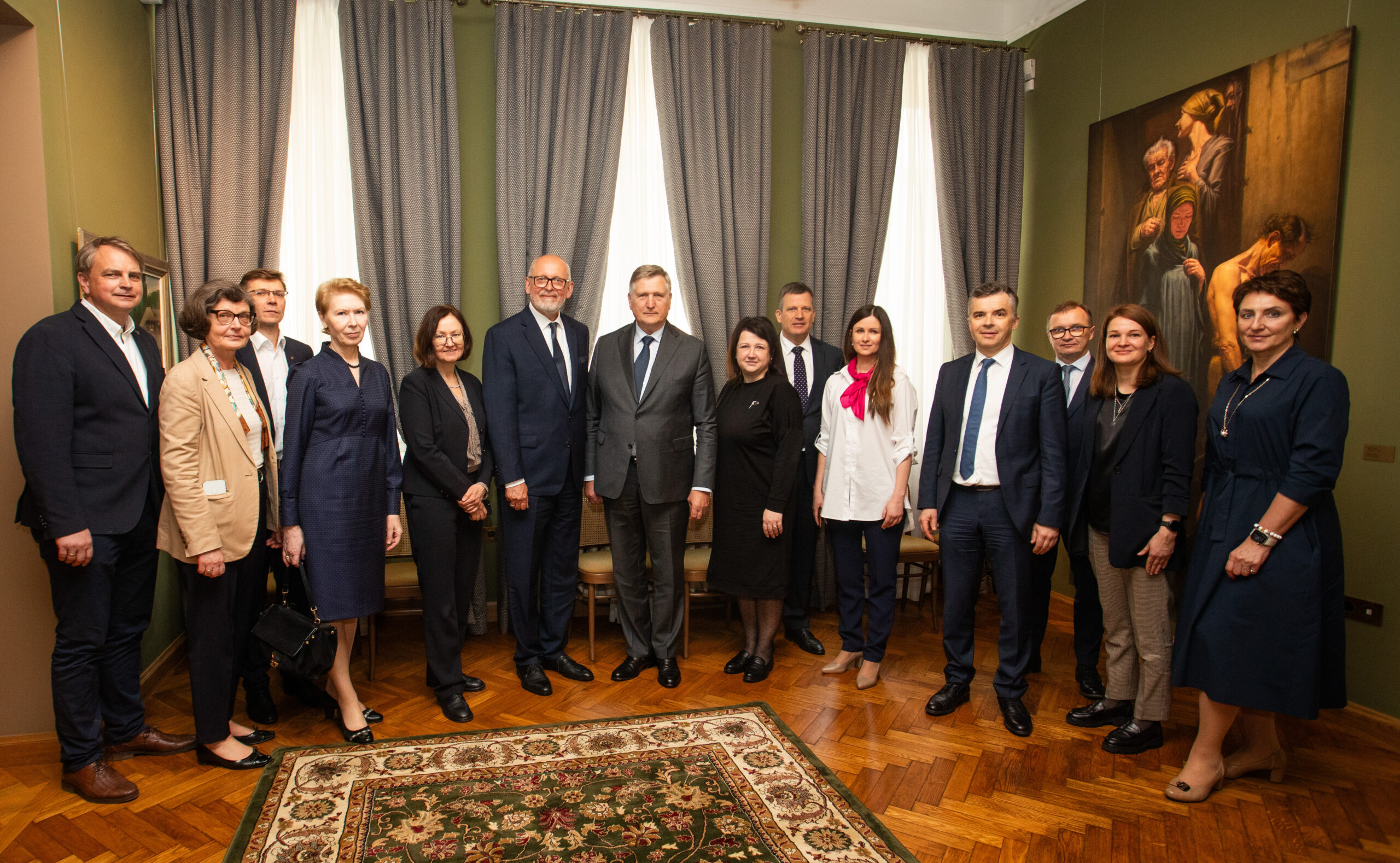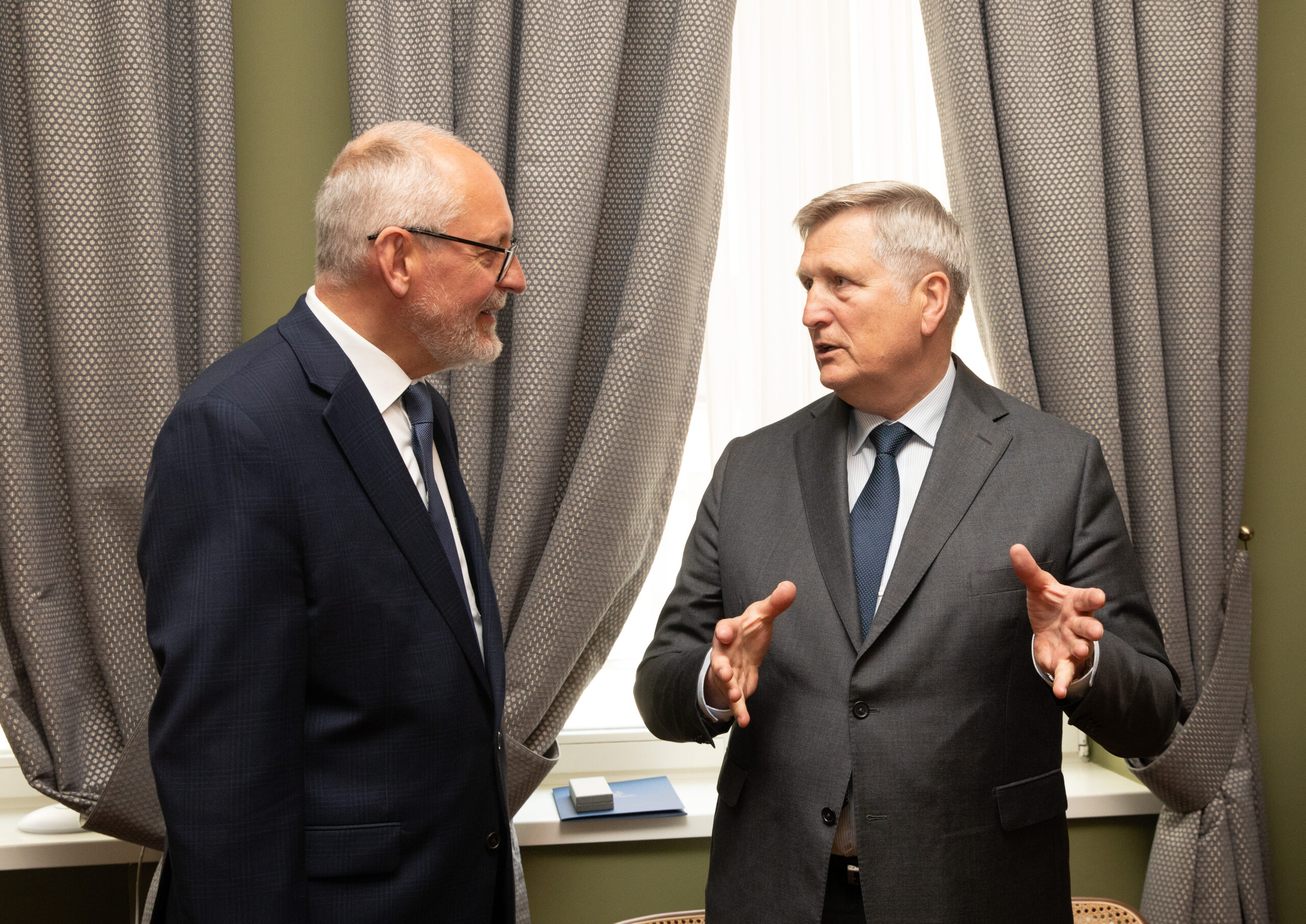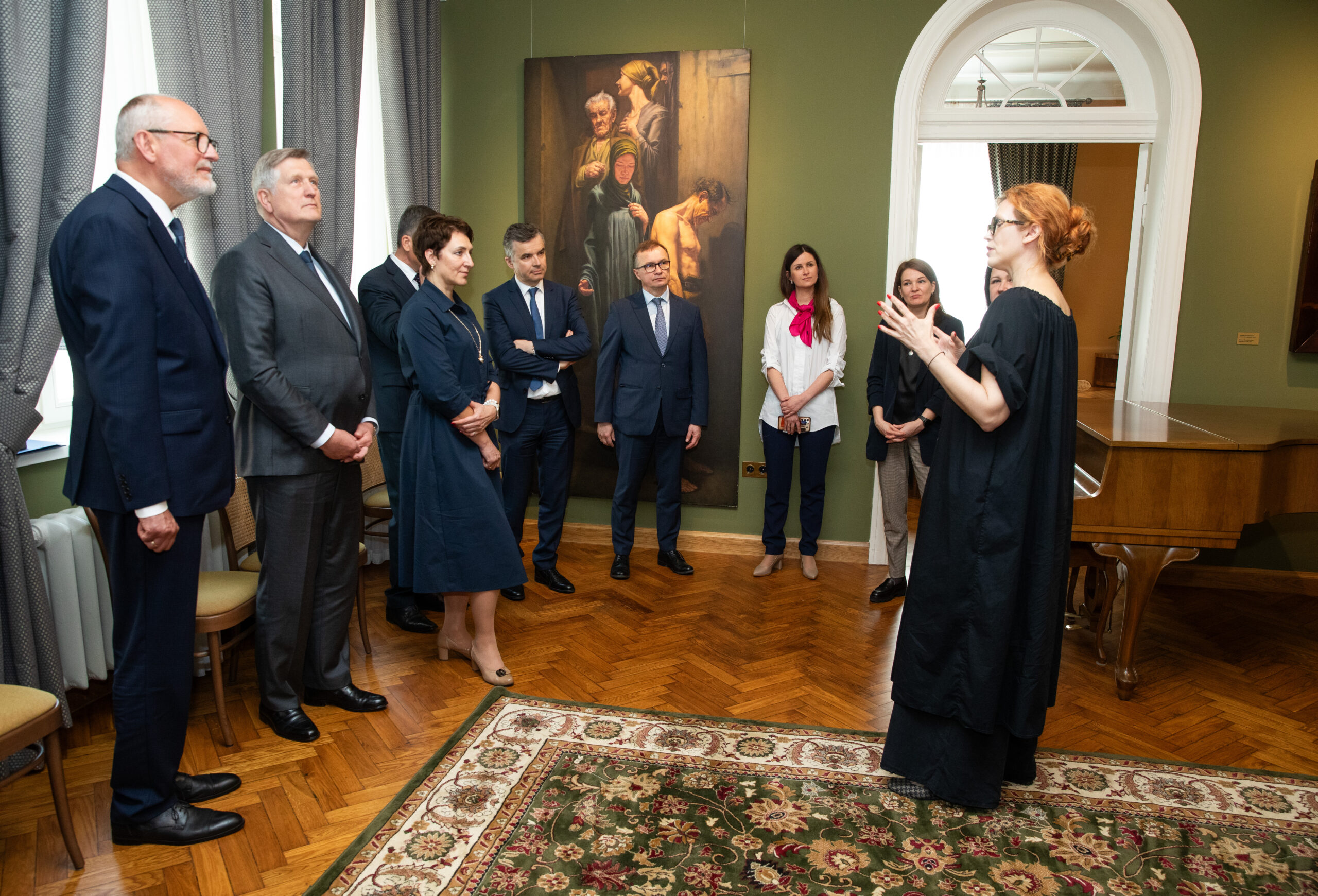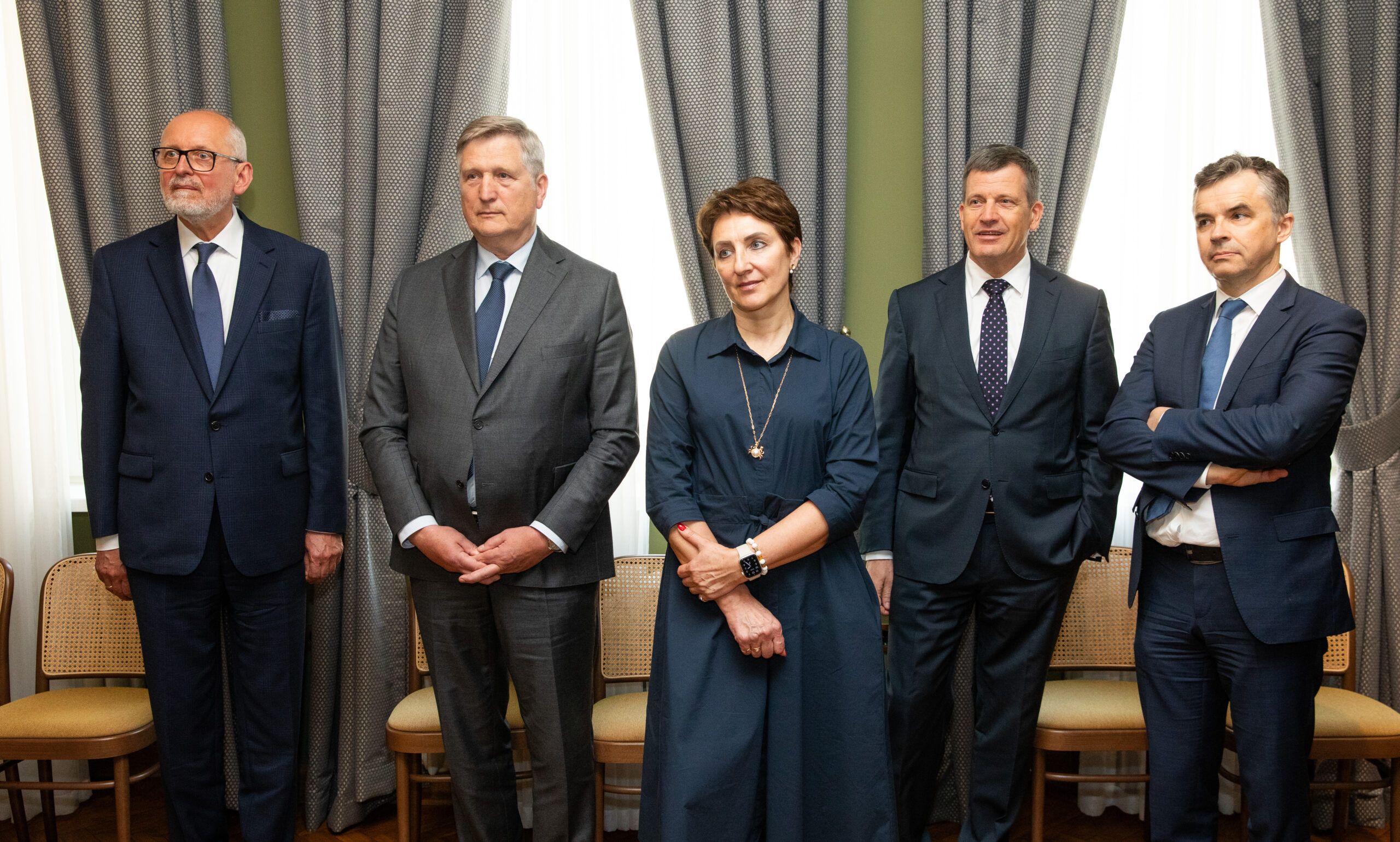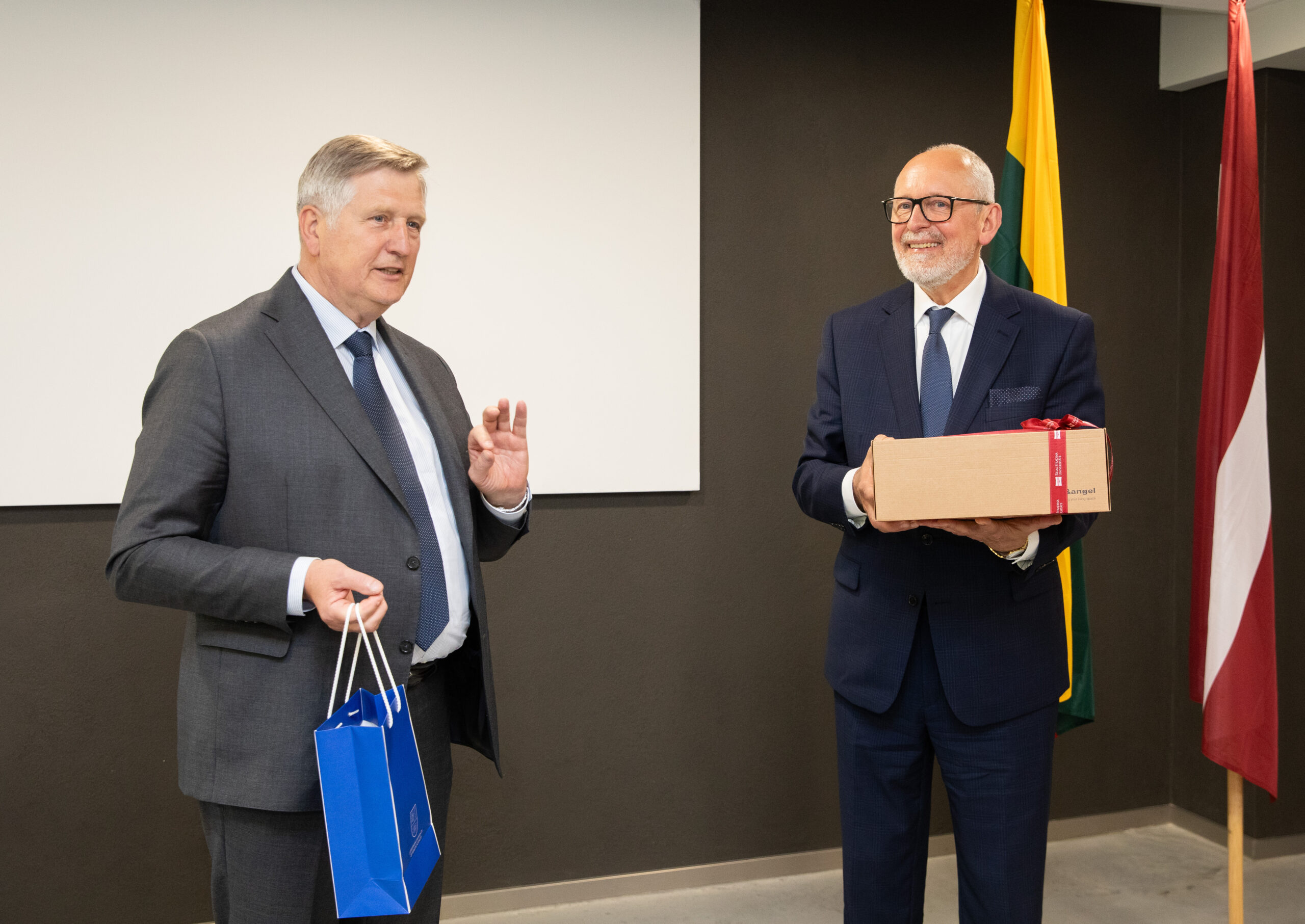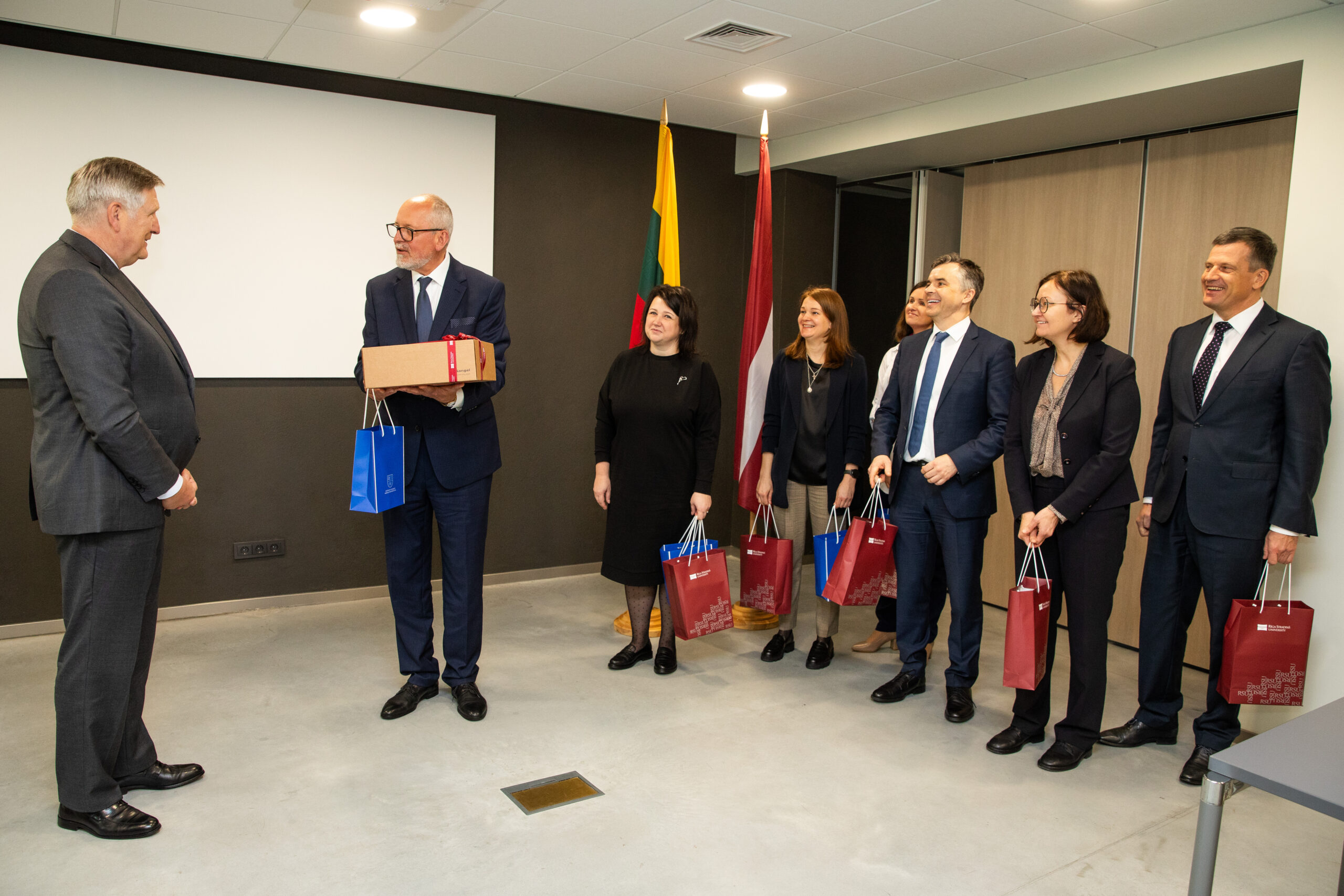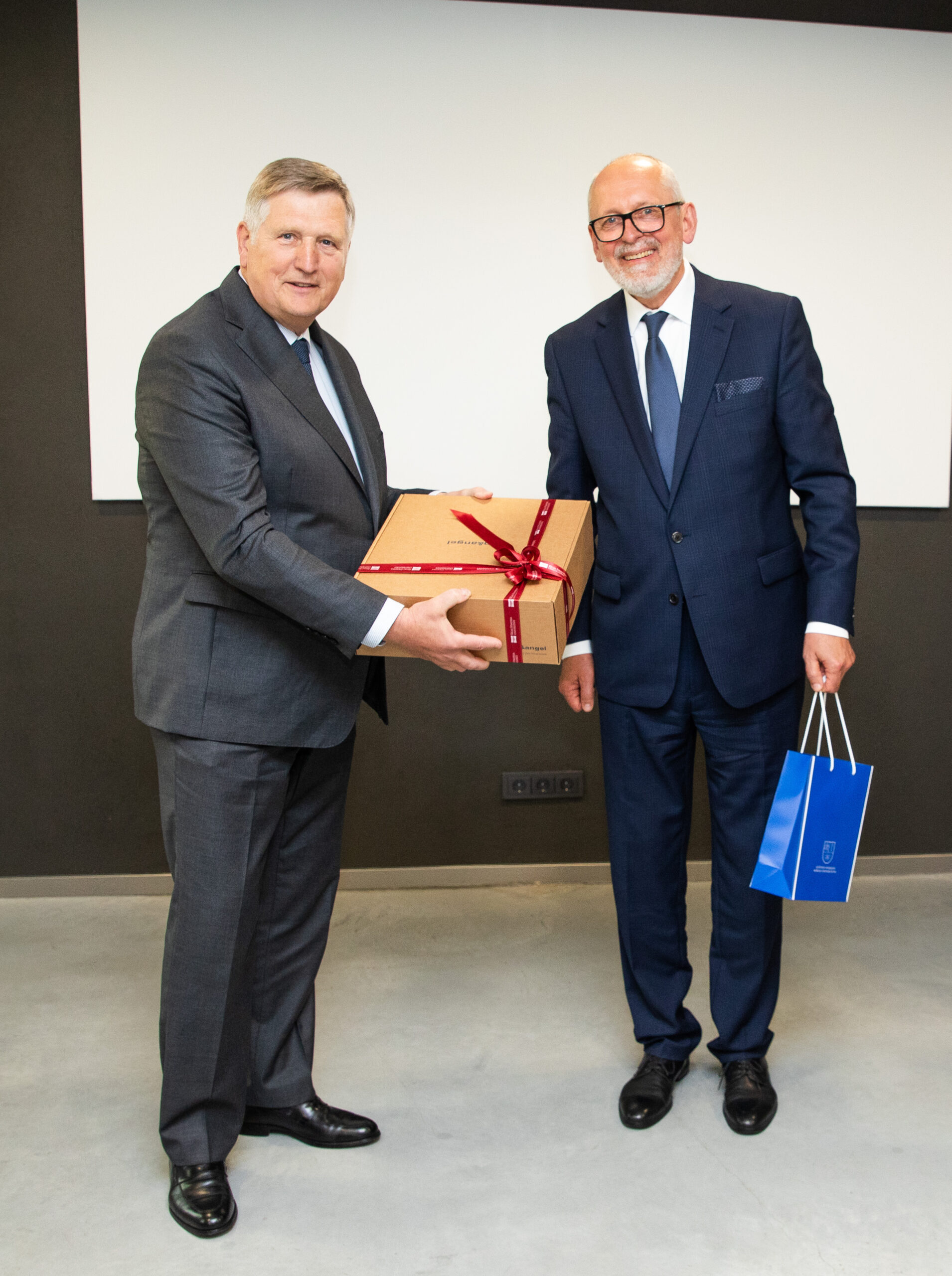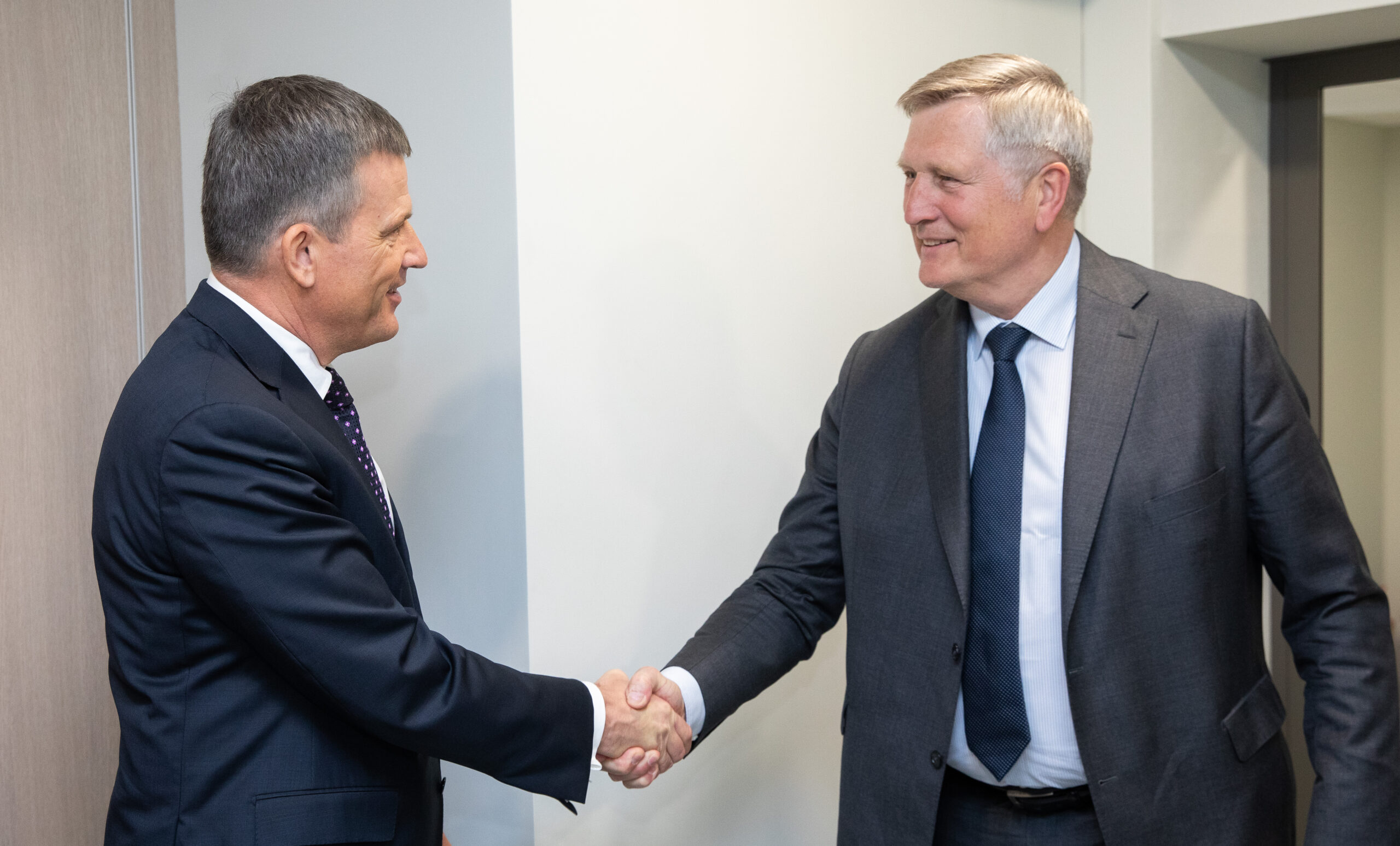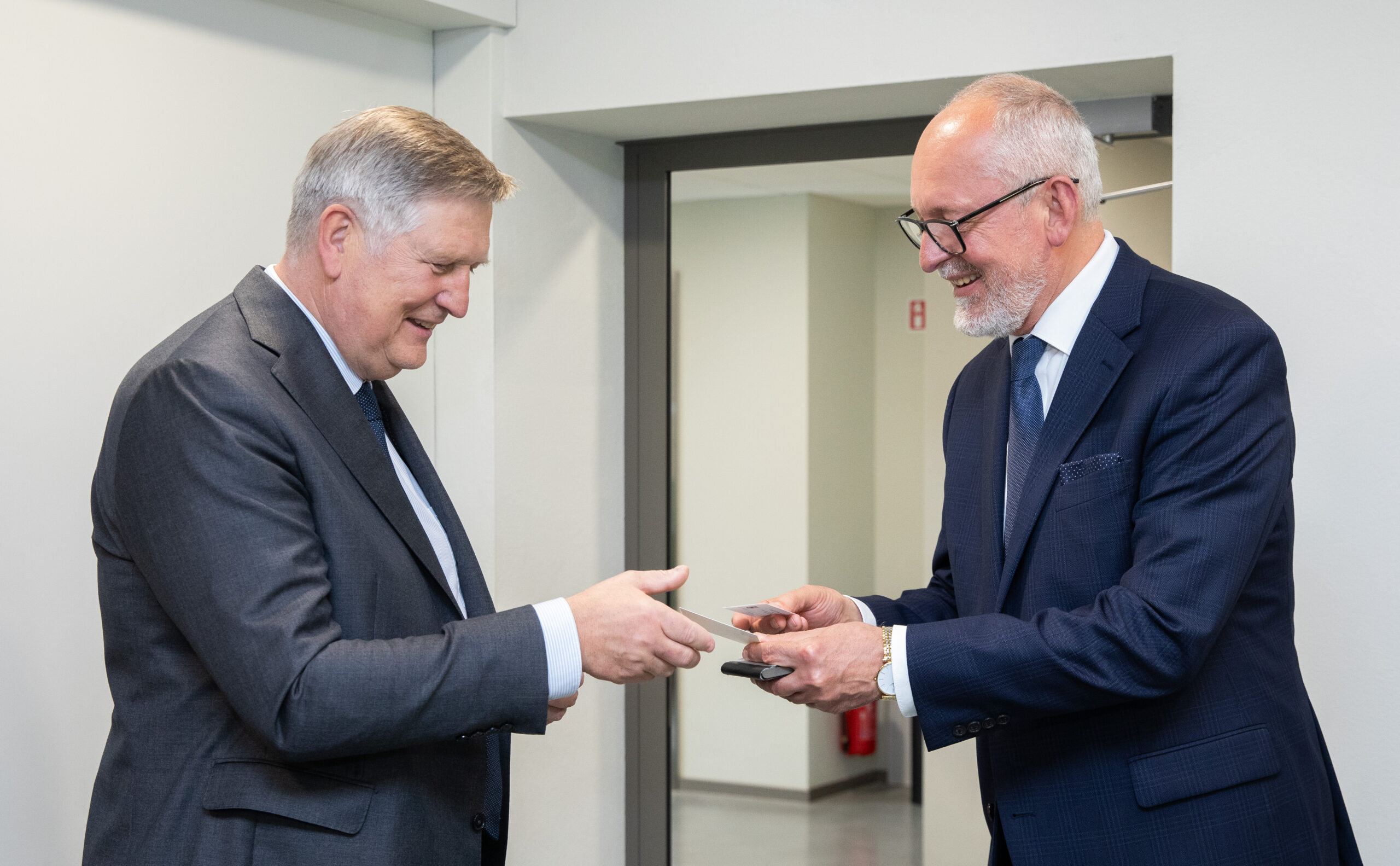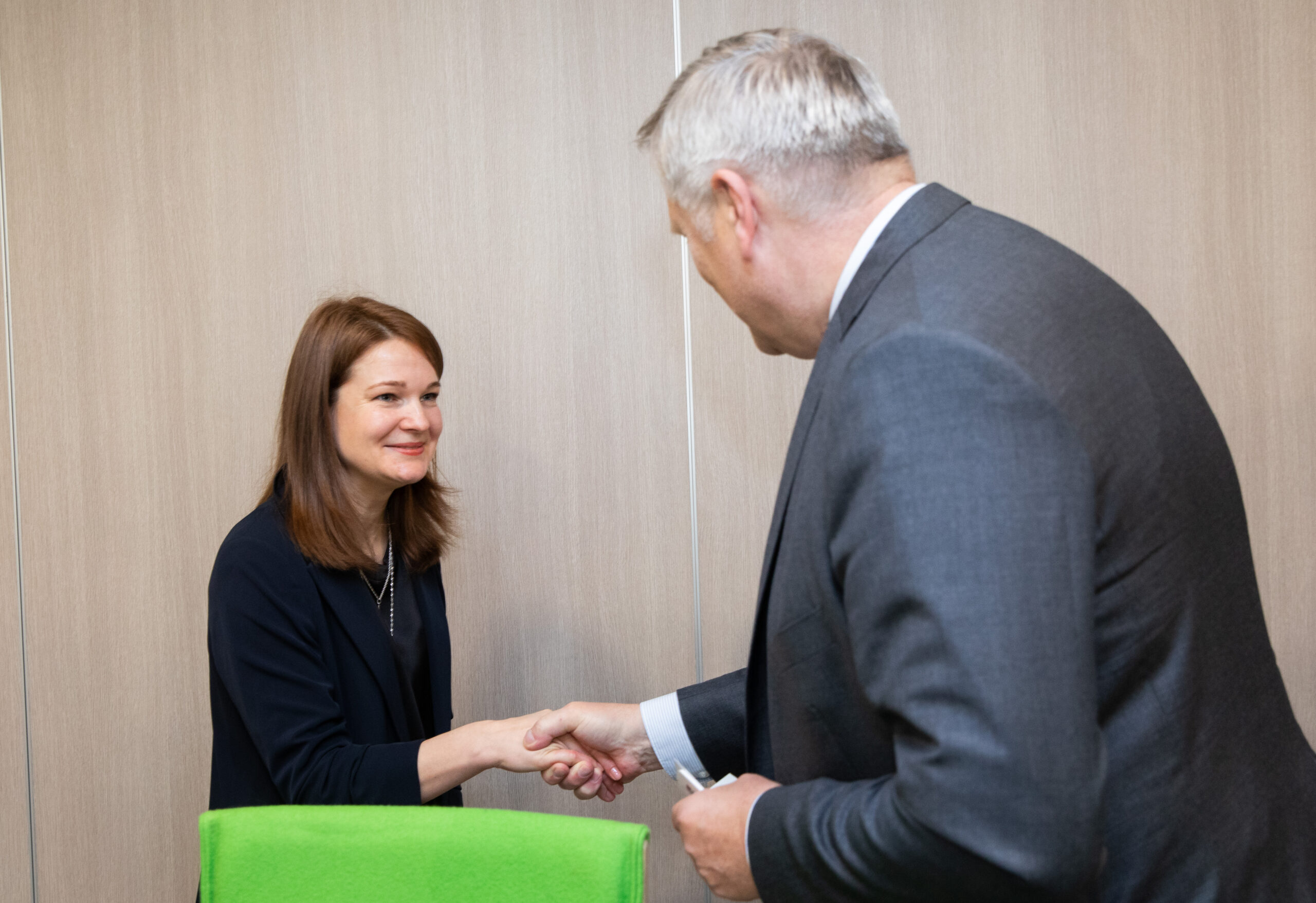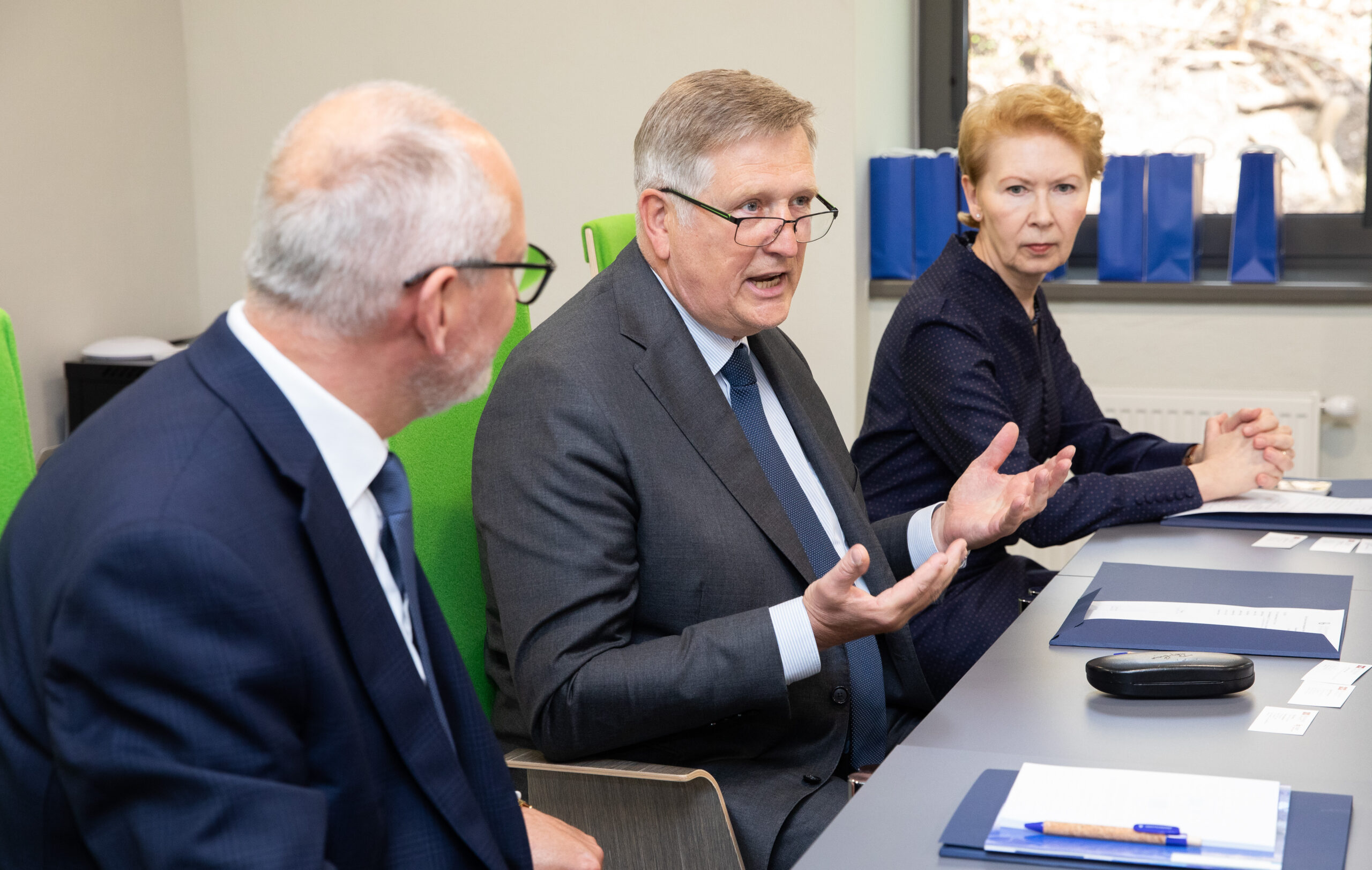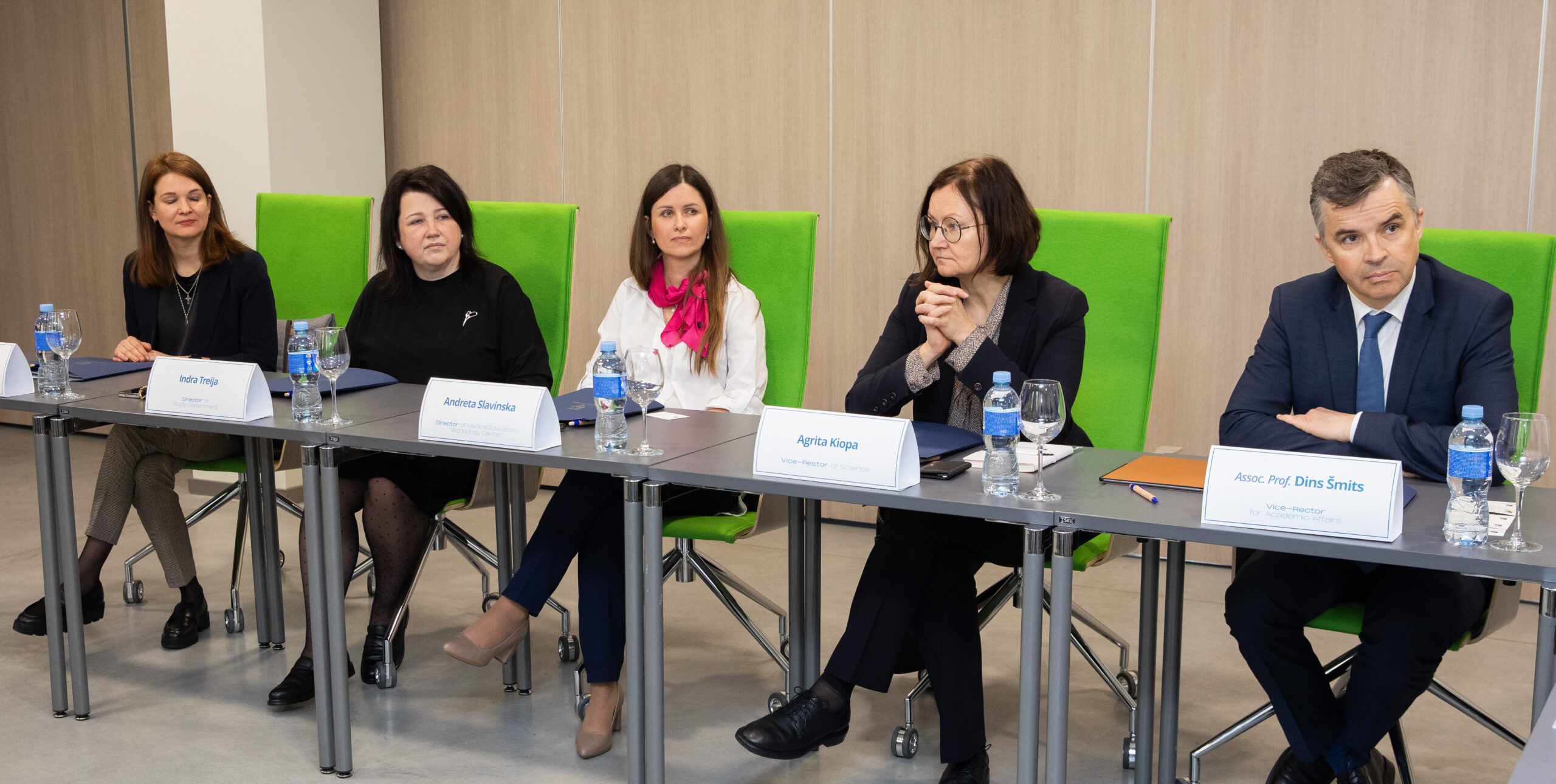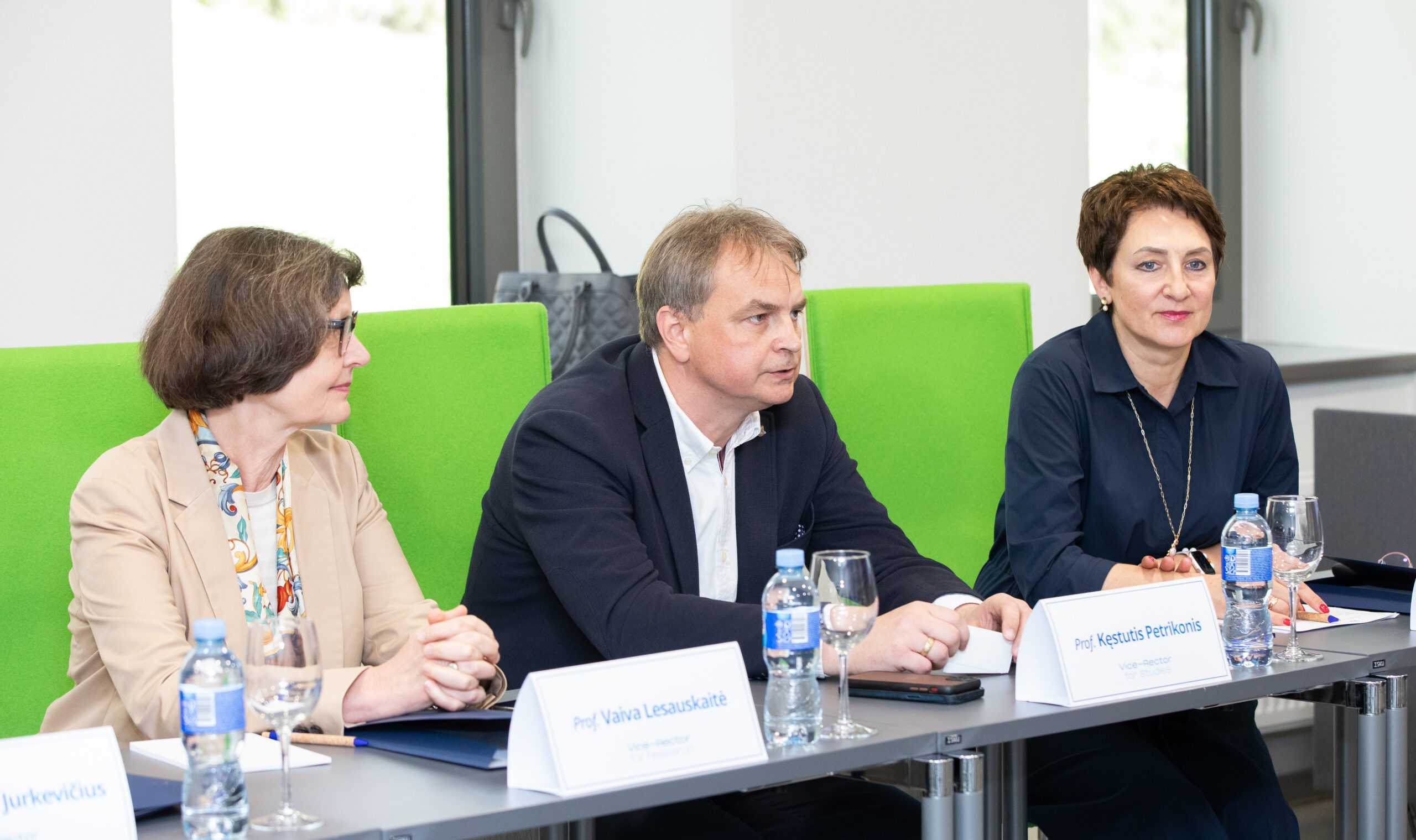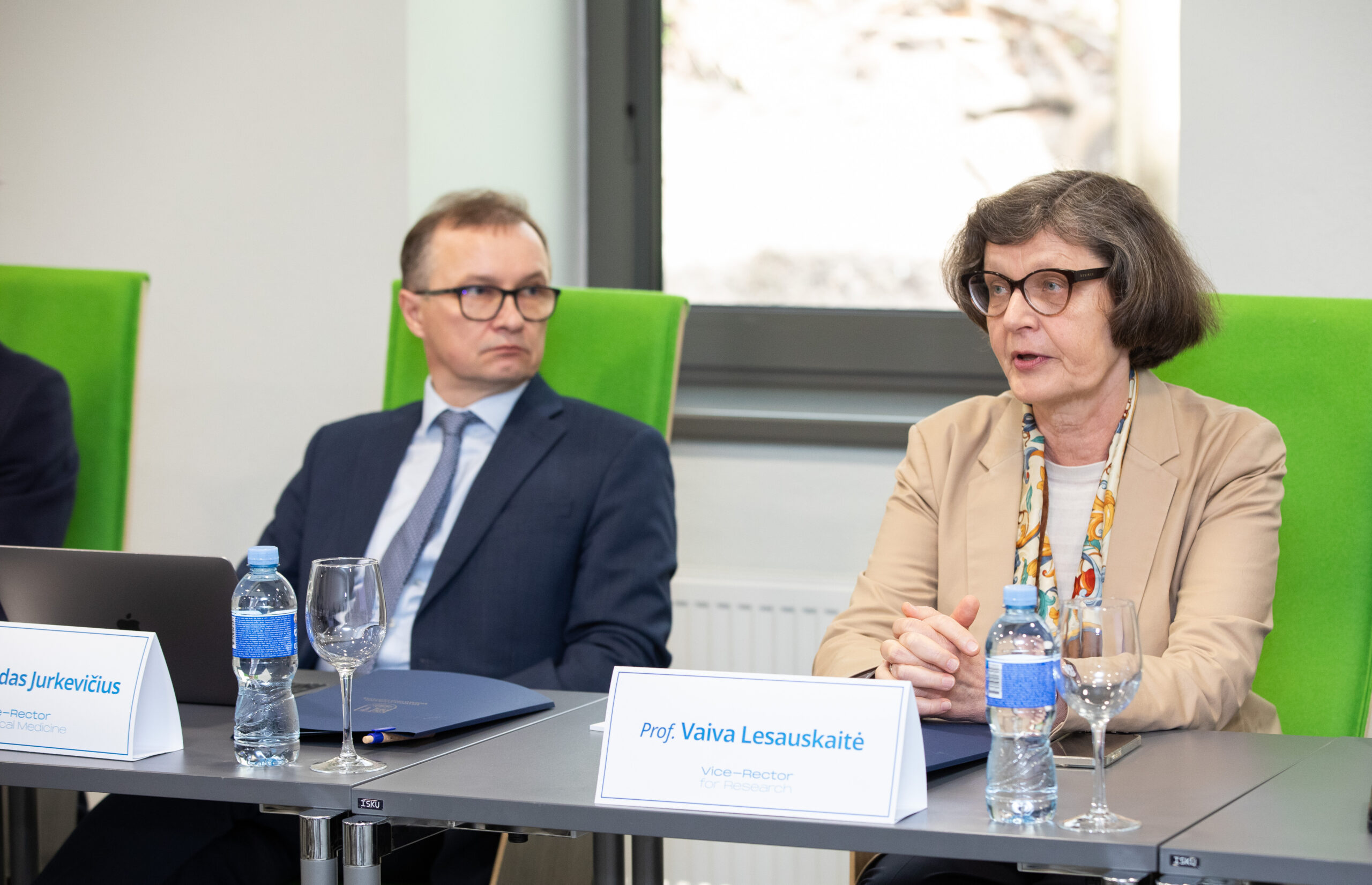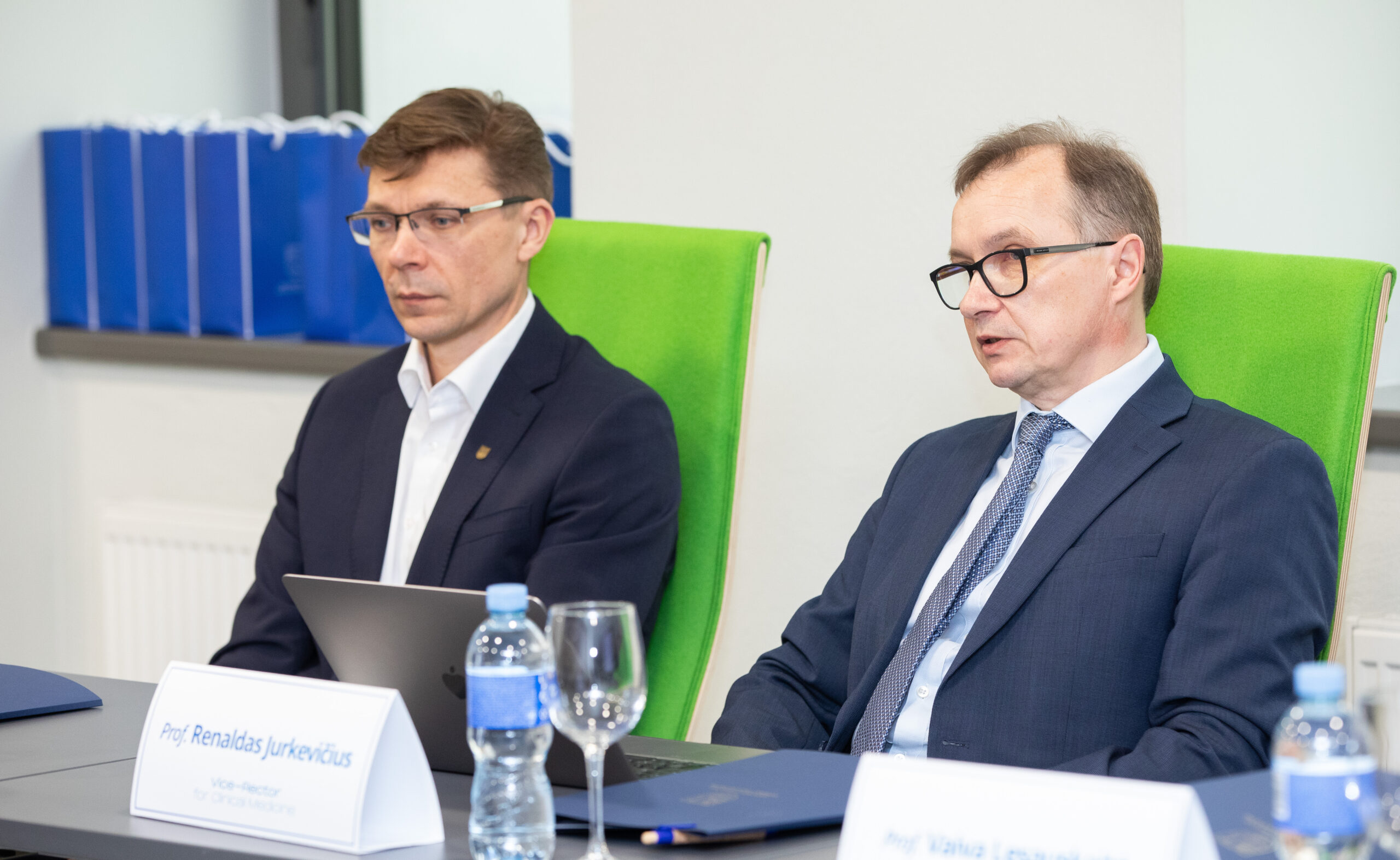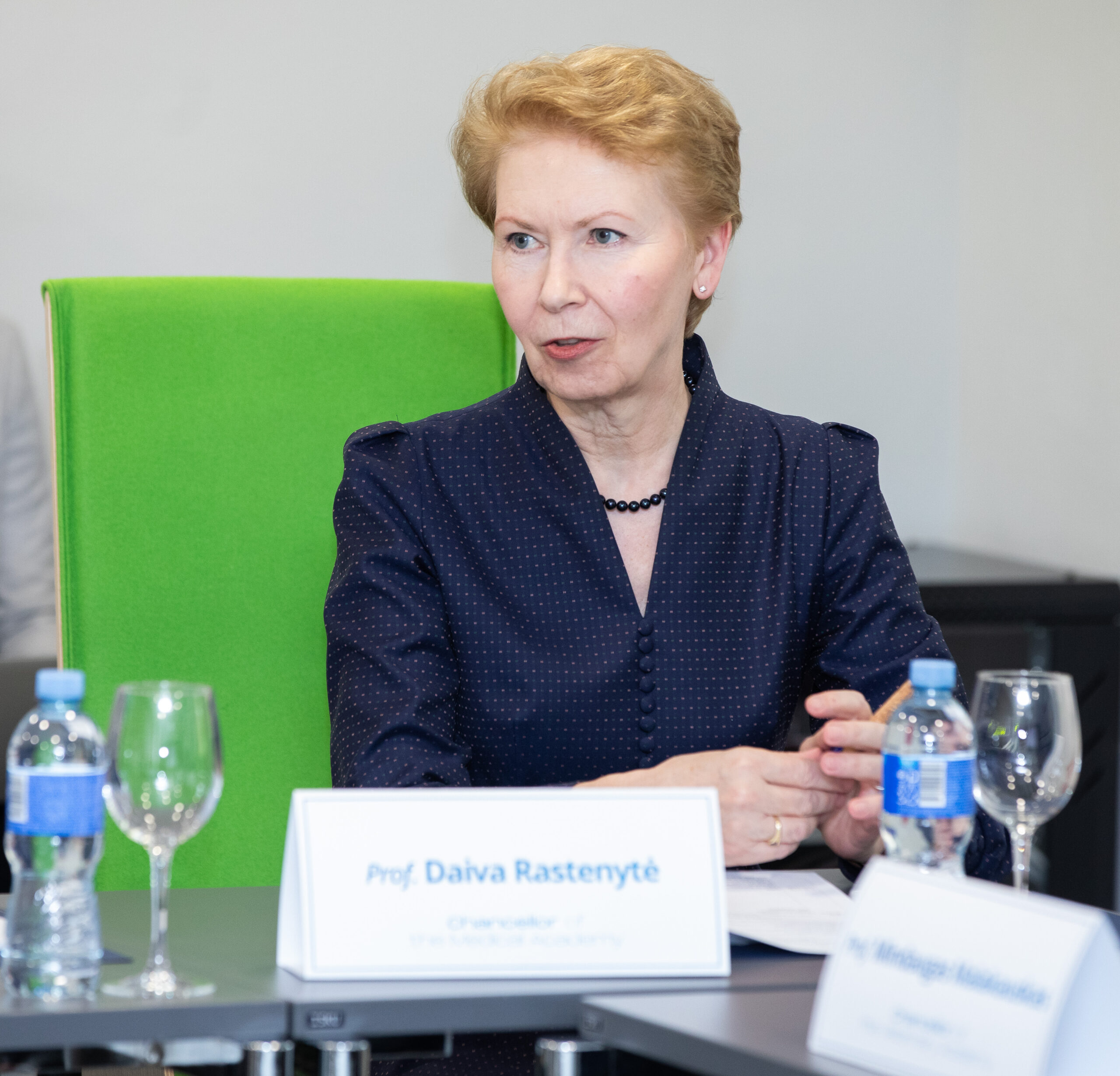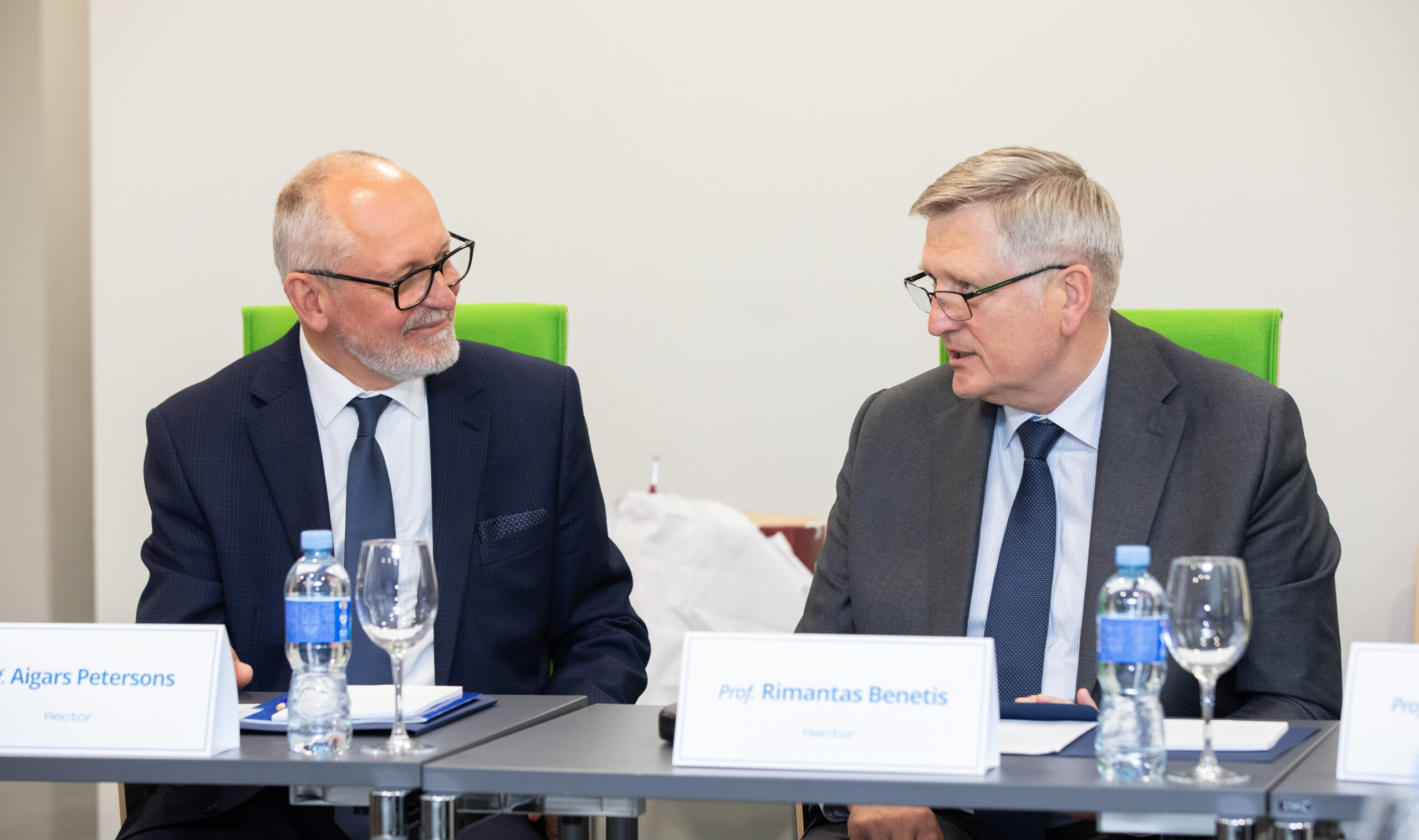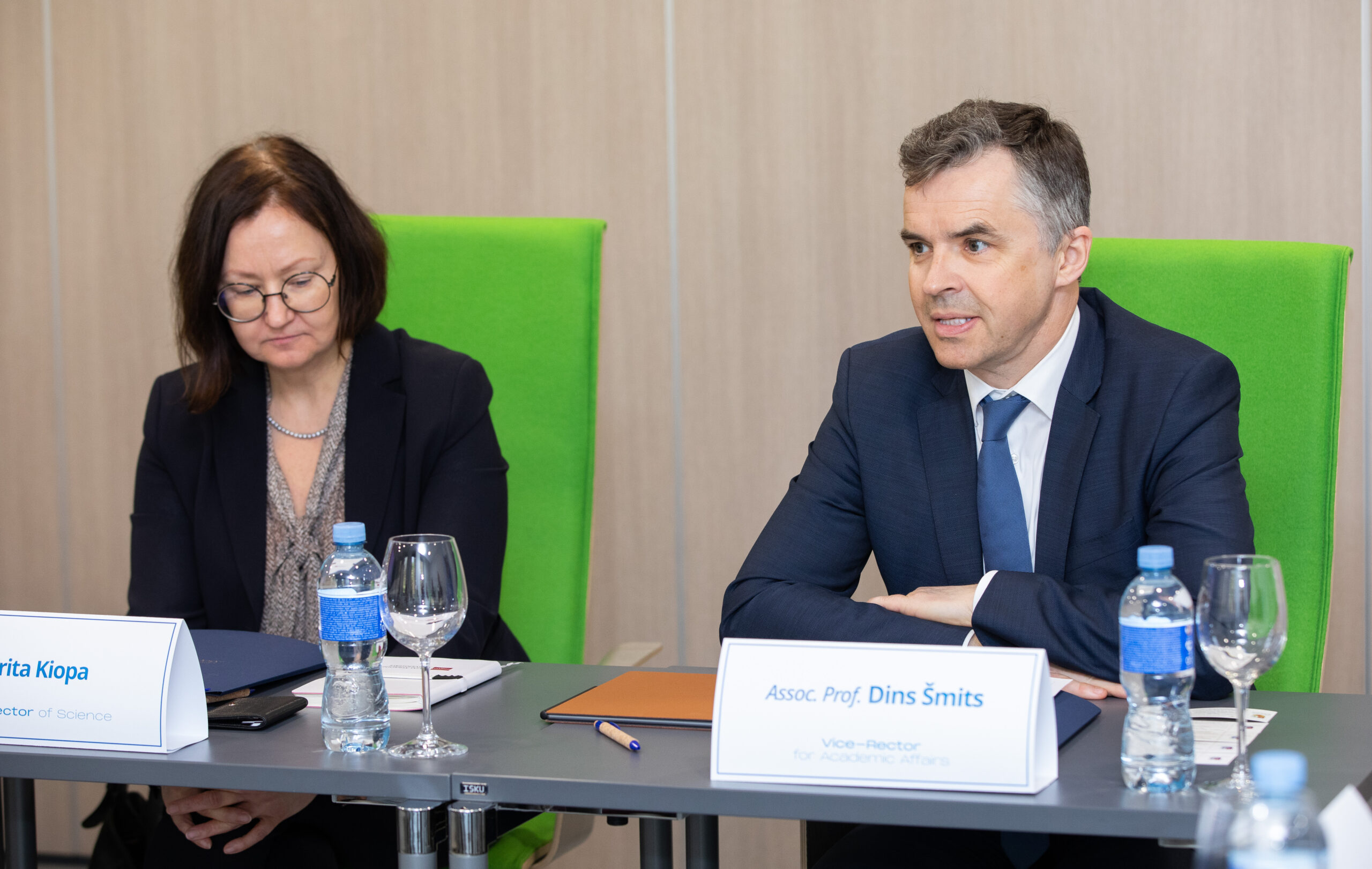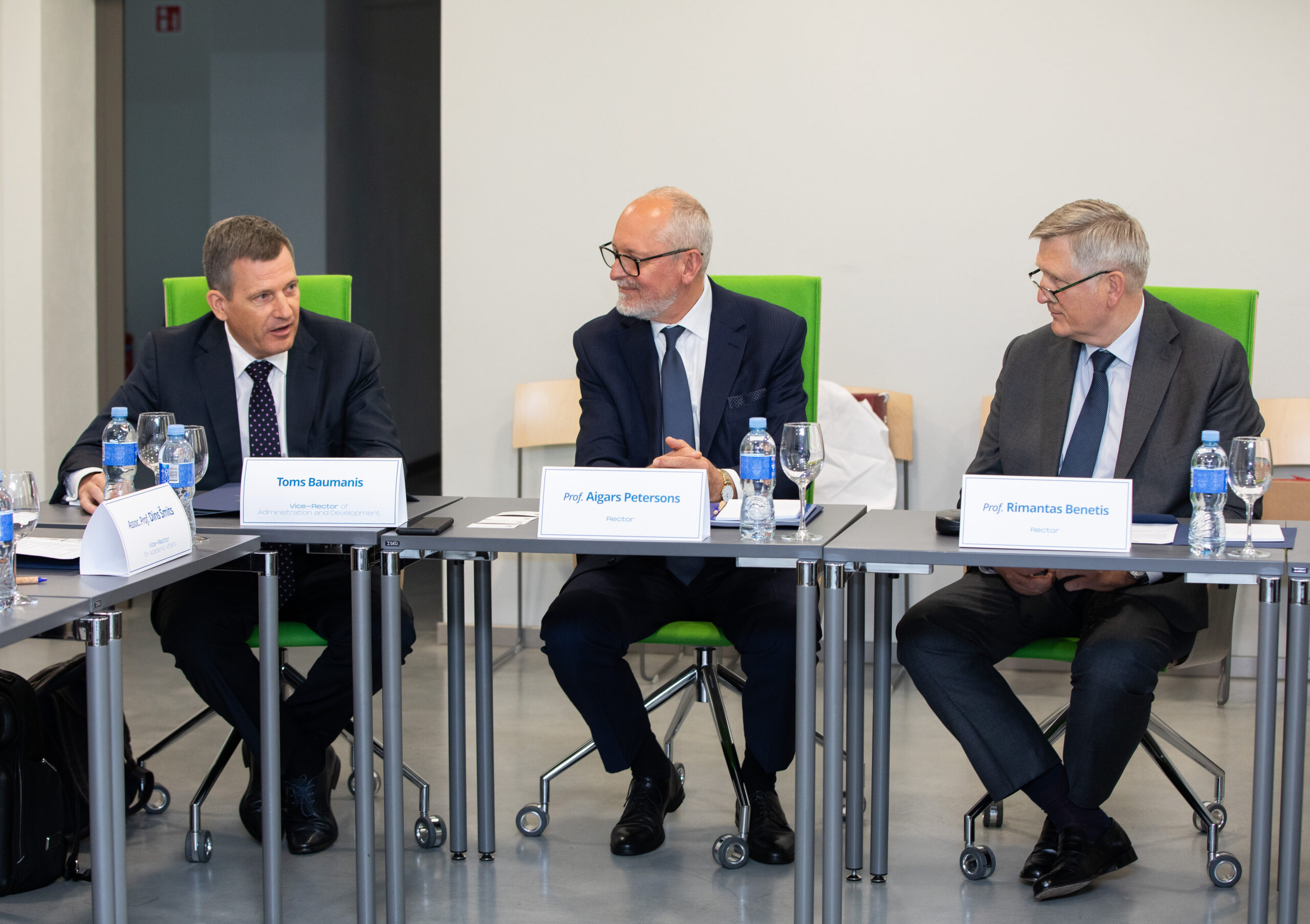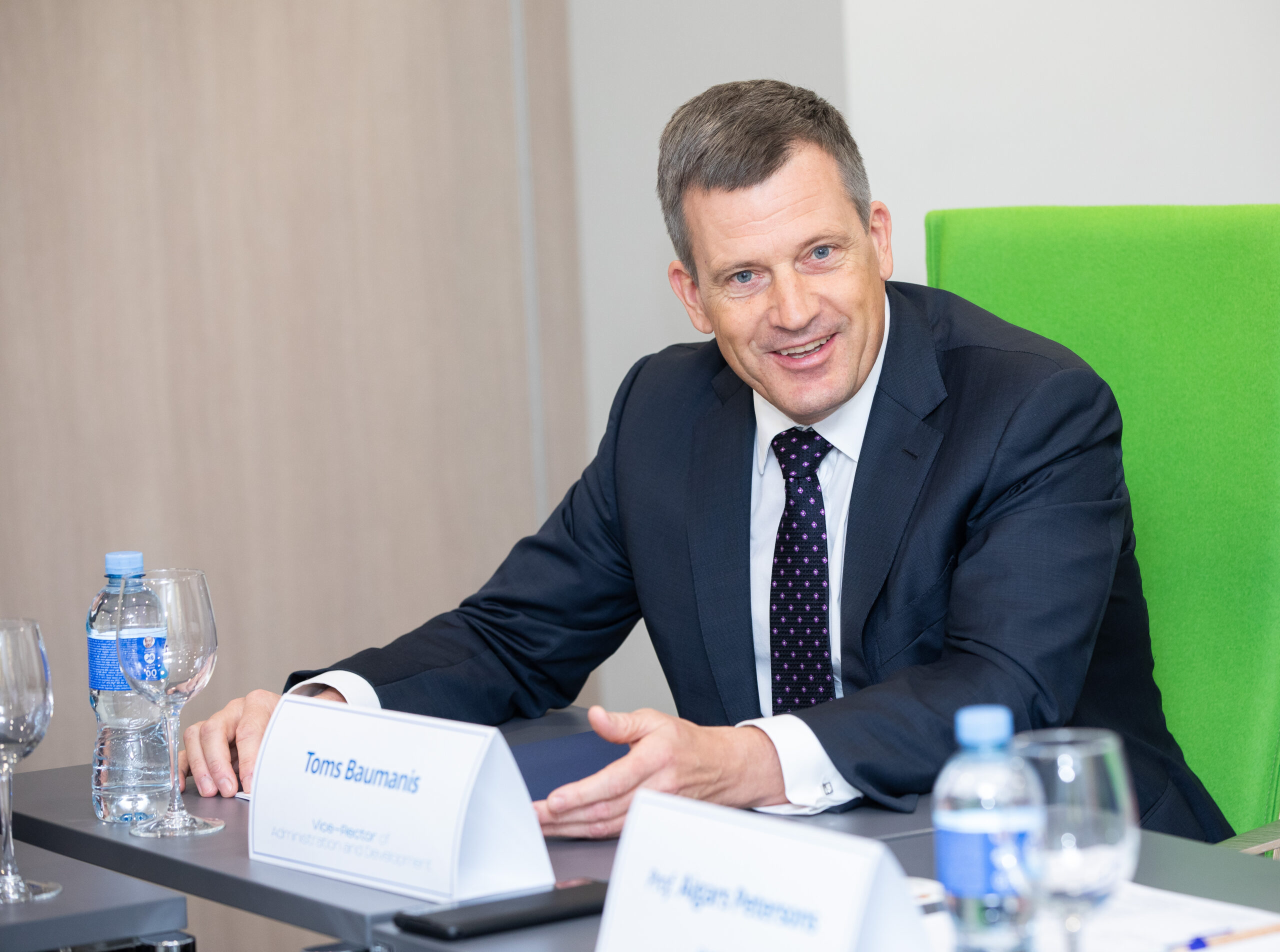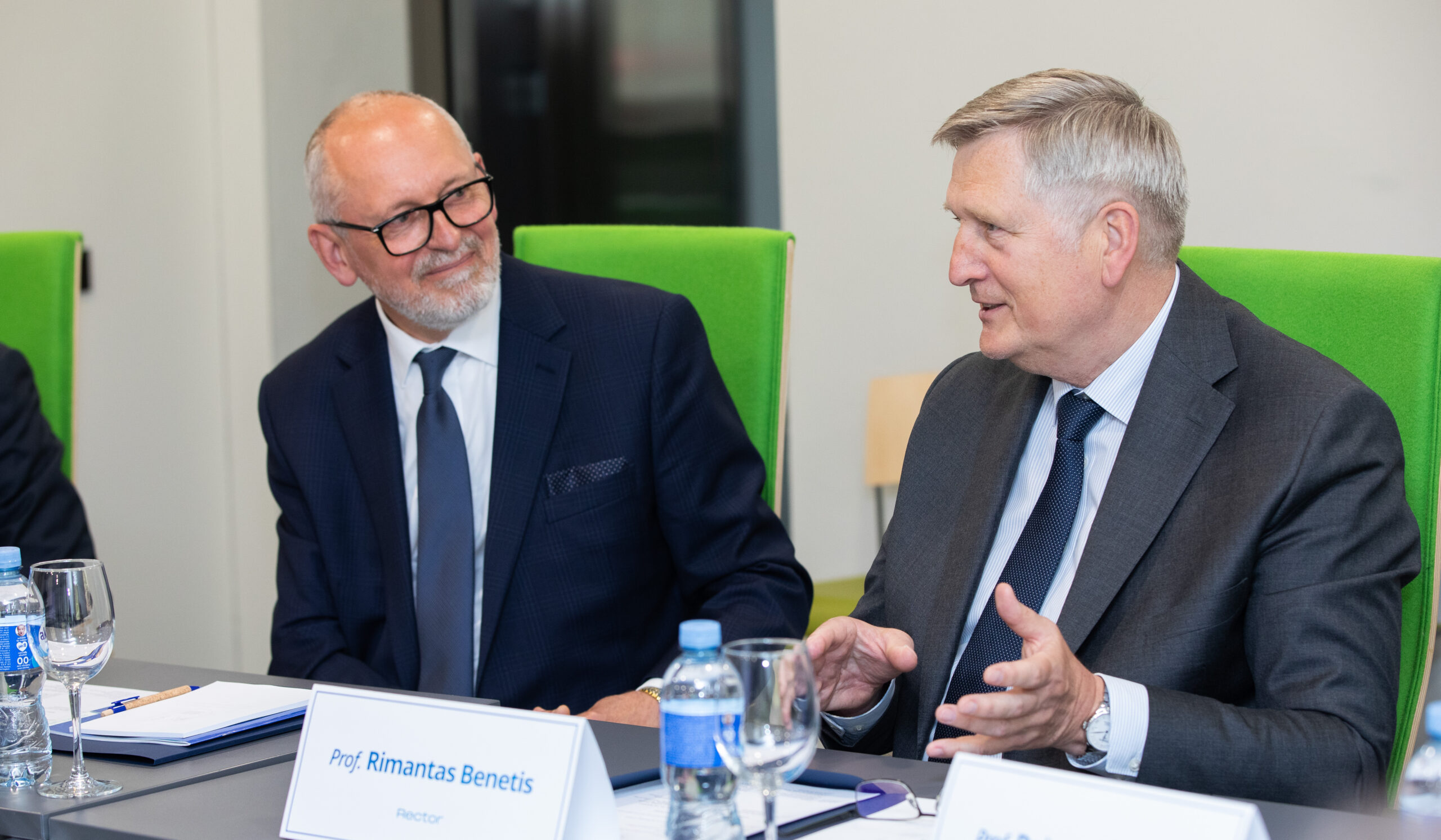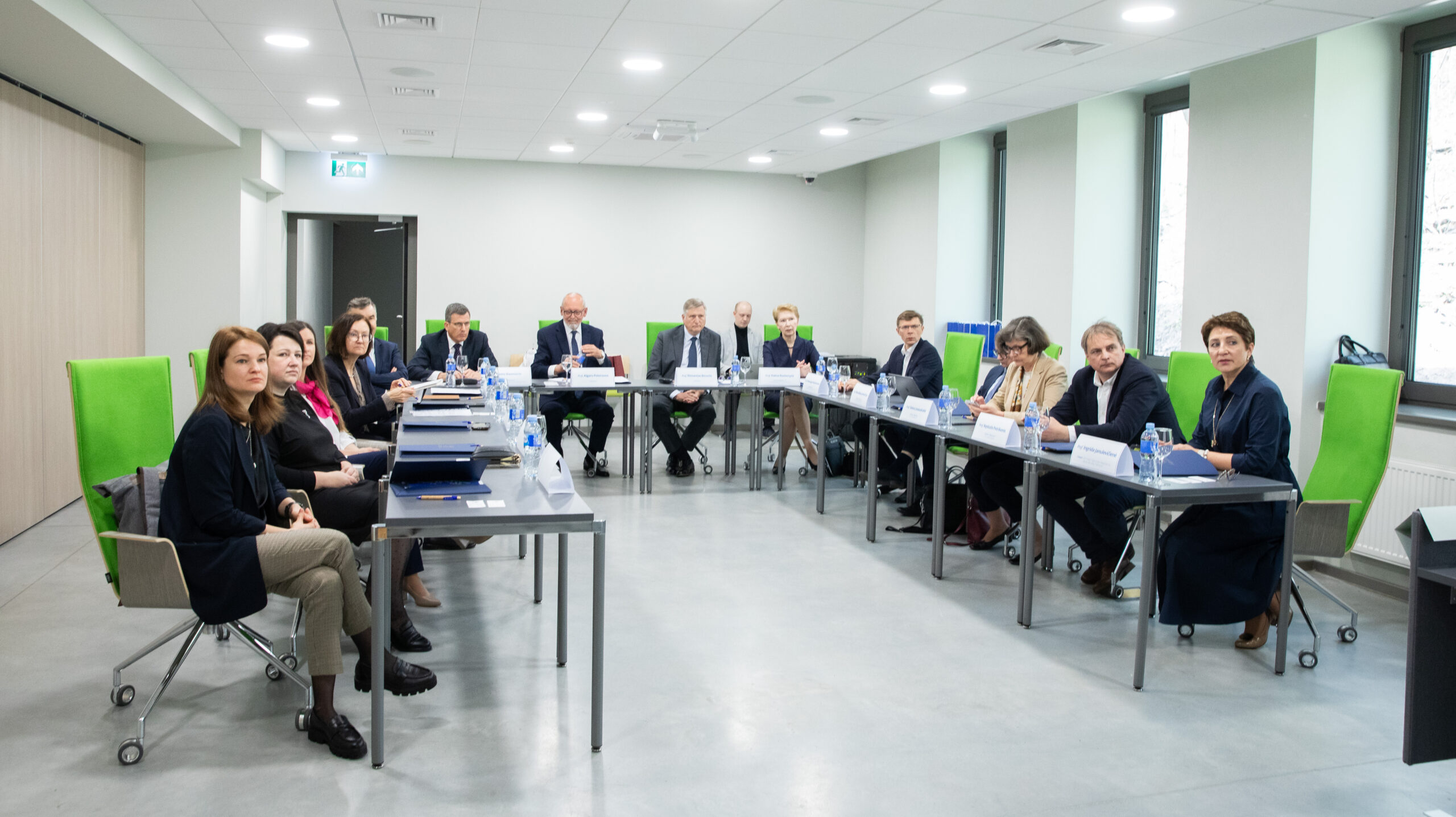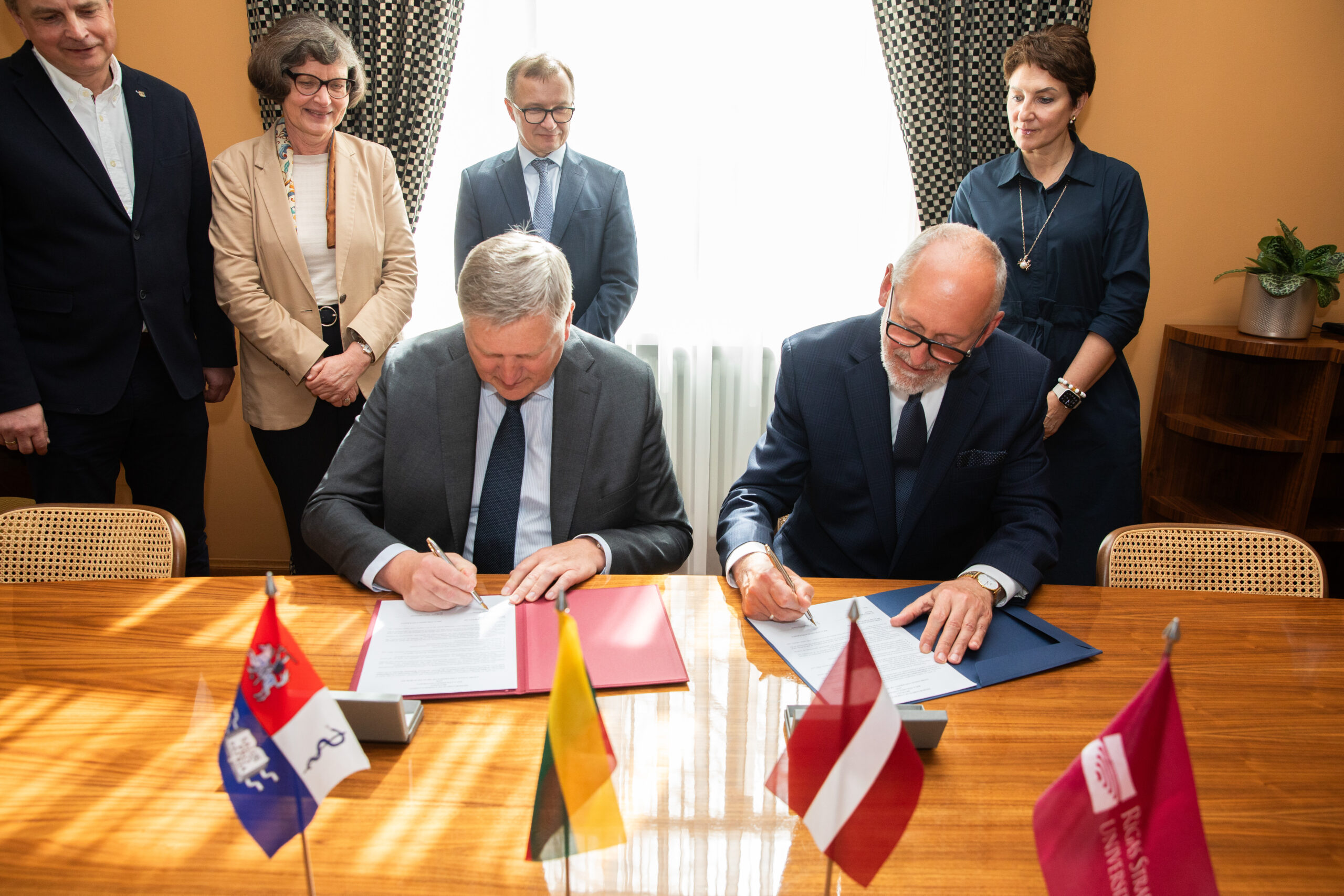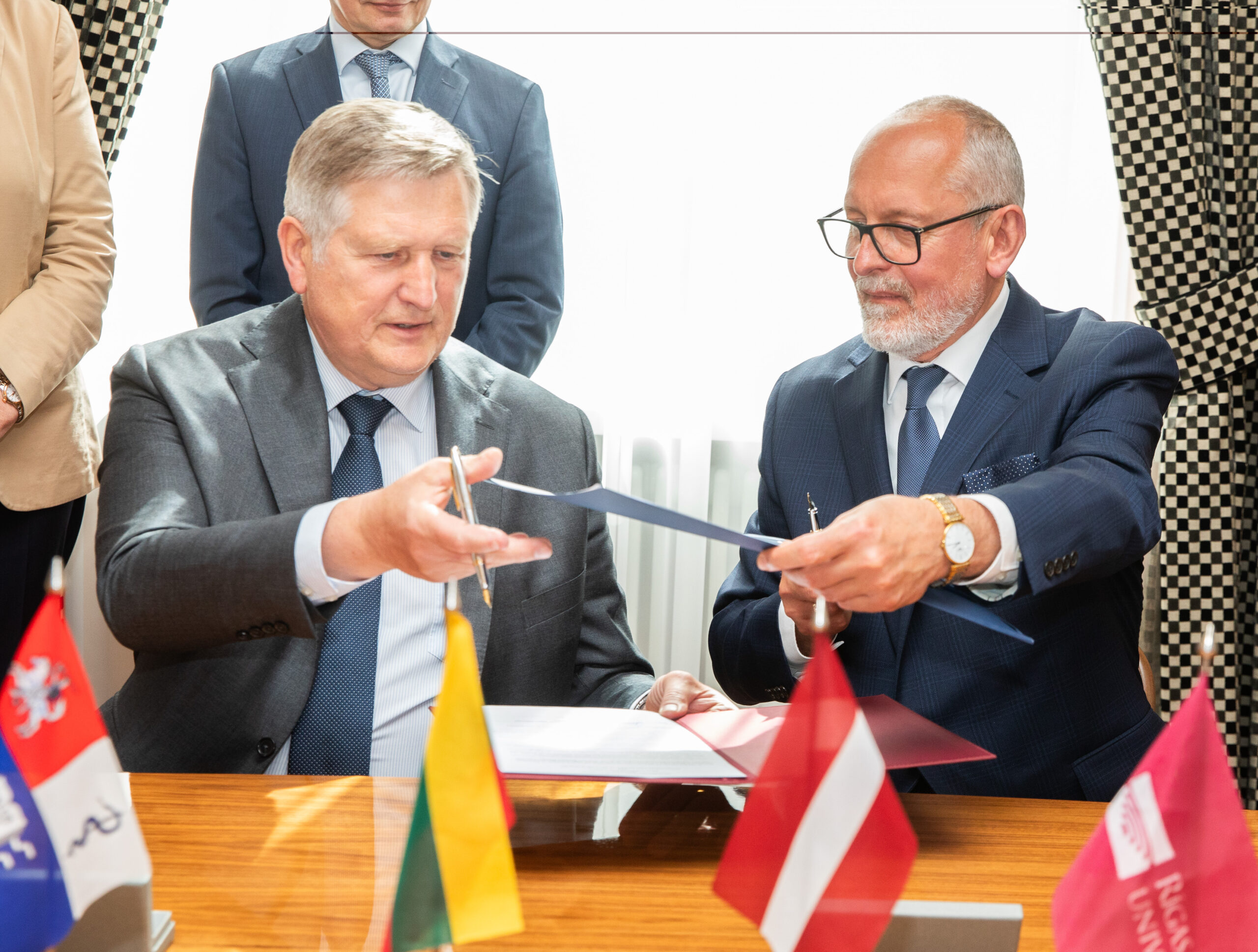Cooperation Agreement Signed between LSMU and Riga Stradins University
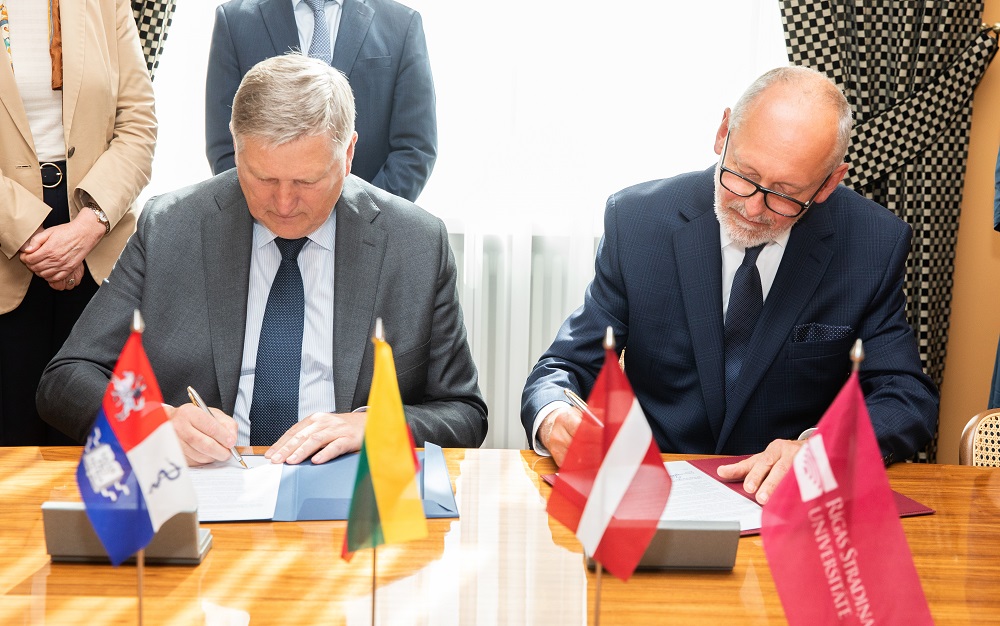
The Lithuanian University of Health Sciences (LSMU) has signed a cooperation agreement with Riga Stradins University (RSU). The signed agreement will set the framework to exchange best practices and to cooperate in the implementation of innovations in science and studies.
“By joining their efforts, our professional teams will rise their profile in Europe. We have a strong basis for cooperation thanks to the long-standing friendship with RSU, which manifests itself on many levels. It dates back to the Soviet era. I personally am familiar with this university very well, so I am very pleased and proud that we are meeting in Kaunas to exchange best practices,” said LSMU Rector Prof. Rimantas Benetis.
“Working together with LSMU, we witness the great power of cooperation. Together, we will find new ways to innovate in research and education, promote discovery, and develop globally competitive study programmes. Through this partnership, we reaffirm our unwavering commitment to excellence and the advancement of society,” said RSU Rector Prof. Aigars Petersons during the signing of the cooperation agreement at the LSMU Emmanuel Levinas Centre.
Long-standing Partnership Ties
LSMU and RSU have maintained a relationship for many years. Each year, the Universities exchange 20 students, and teachers and other administrative staff visit each other for training.
The relationship has been strengthened by the fact that the Rector of LSMU, together with his colleagues from the RSU University Hospital, have hosted a number of live cardiac surgery sessions.
Meanwhile, LSMU Vice Rector for Clinical Medicine Prof. Renaldas Jurkevičius is a member of the RSU Council, where he advises his Latvian colleagues on administrative management issues. During the meeting, he shared good practices and introduced Kaunas Clinics’ affiliation with the University.
“Unlike the RSU University Hospital, the activities of Kaunas Clinics are integrated into the activities of the University. This integration helps us not only in the fields of education and science. Having a common structure between the university and the hospital is also beneficial for the clinics, as it employs a large number of young, knowledge-seeking doctors and residents. Such cooperation also helps to develop narrow, specific fields of medicine,” said Prof. Jurkevičius.
Discuss Potential Areas of Cooperation
During the meeting, the delegations of LSMU and RSU not only shared their best practices, but also discussed possible cooperation in the fields of science and innovation. They discussed the possibility of developing joint Horizon Europe and EU4Health projects on precision medicine, molecular biology, chronic fatigue, occupational safety, environmental health, public health, sports science, and rehabilitation.
“RSU Vice Rector for Science Agrita Kiopa is an expert in the evaluation under the Horizon Europe framework and has extensive experience in working on projects of this scale. In addition, more than 50% of RSU’s scientific publications fall within the first and second quartile. Thus, their research activities have been developing really well, and we could find common points of contact and develop research areas that would be mutually beneficial and interesting for both parties,” said Prof. Ingrida Janulevičienė, the Dean of the LSMU International Relations and Study Centre.
The guests from Latvia visited the LSMU Educational Laboratory Building and the Santaka Valley Centre for the Advanced Pharmaceutical and Health Technologies, where they were introduced to the University’s researchers, toured the research infrastructure, and observed the functioning of various processes.
“National leadership and a growing number of international research projects are high on our agenda. We aim to strengthen cooperation with business, expand our experimental base, and enhance learning conditions. We look forward to cooperating with RSU in these areas in order to achieve the best results,” said Prof. Vaiva Lesauskaitė, LSMU Vice Rector.
Another area of possible cooperation discussed was the improvement of the quality of studies. Discussions focused on study organisation processes, quality measures for academic work, approaches to artificial intelligence, OSKE examinations, and the feasibility of a joint digital medicine study programme. According to Prof. Kęstutis Petrikonis, LSMU Vice Rector for Studies, simulations and hybrid classrooms are the strengths of LSMU, which could also be used for cooperation and sharing ideas.

